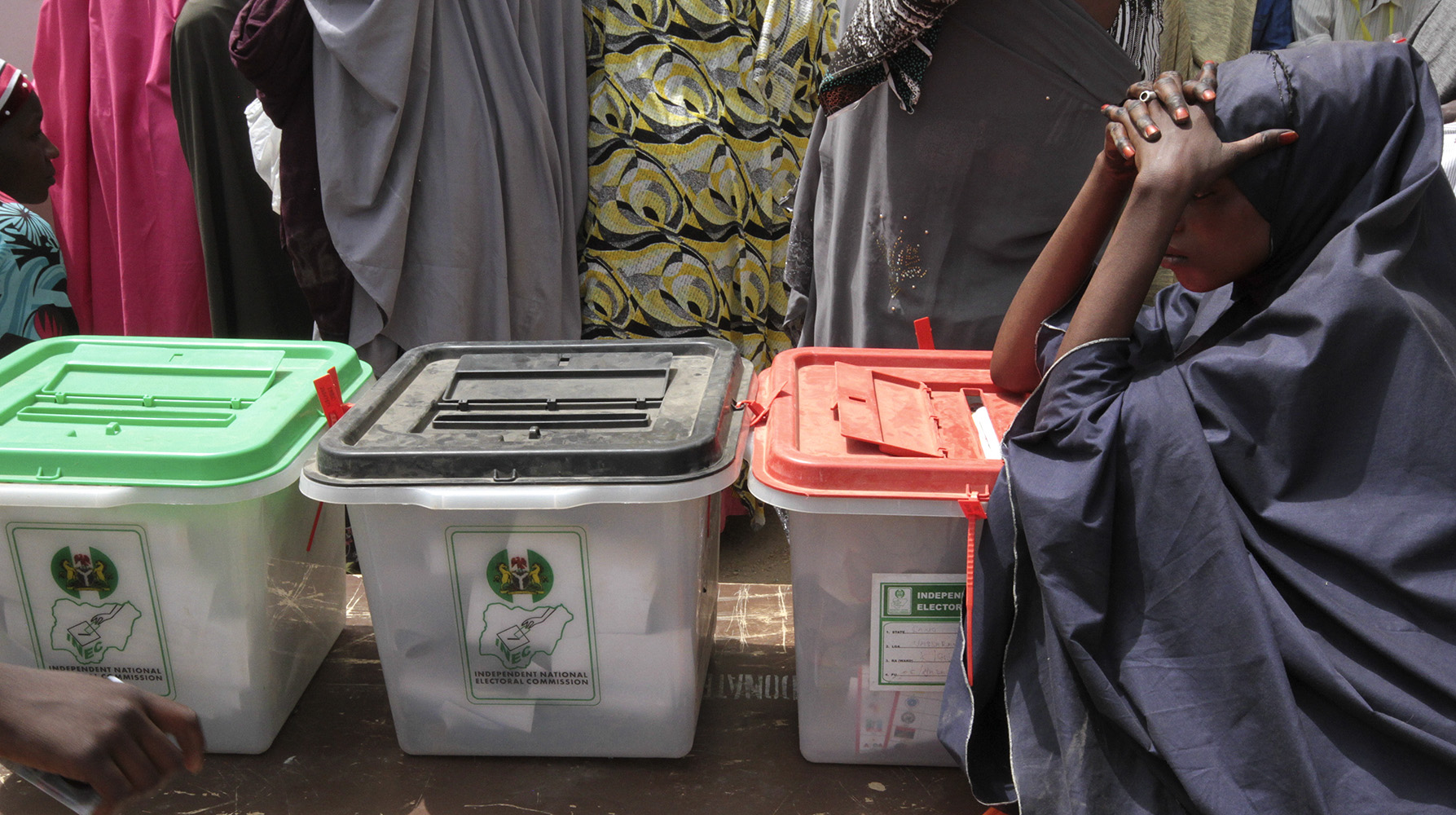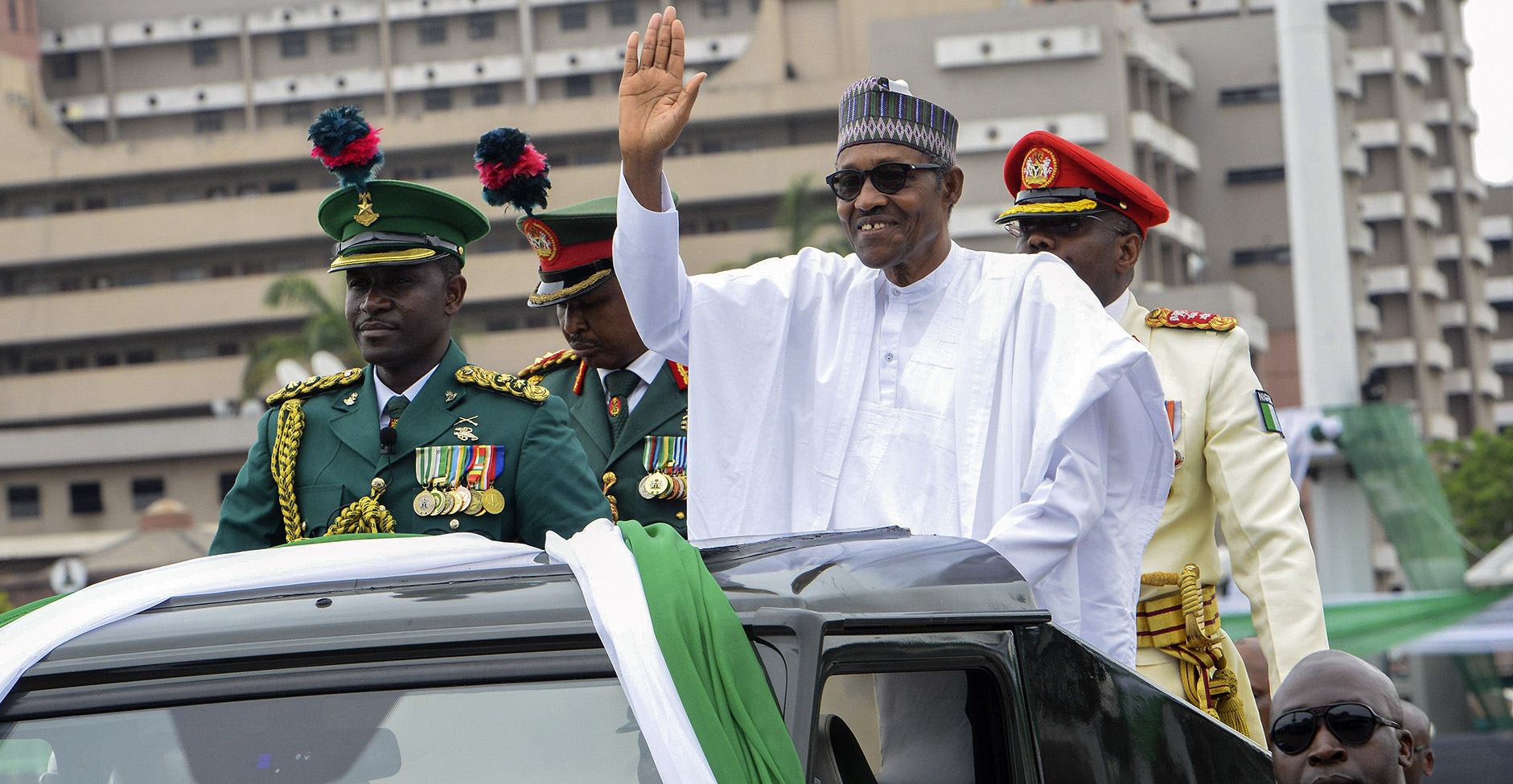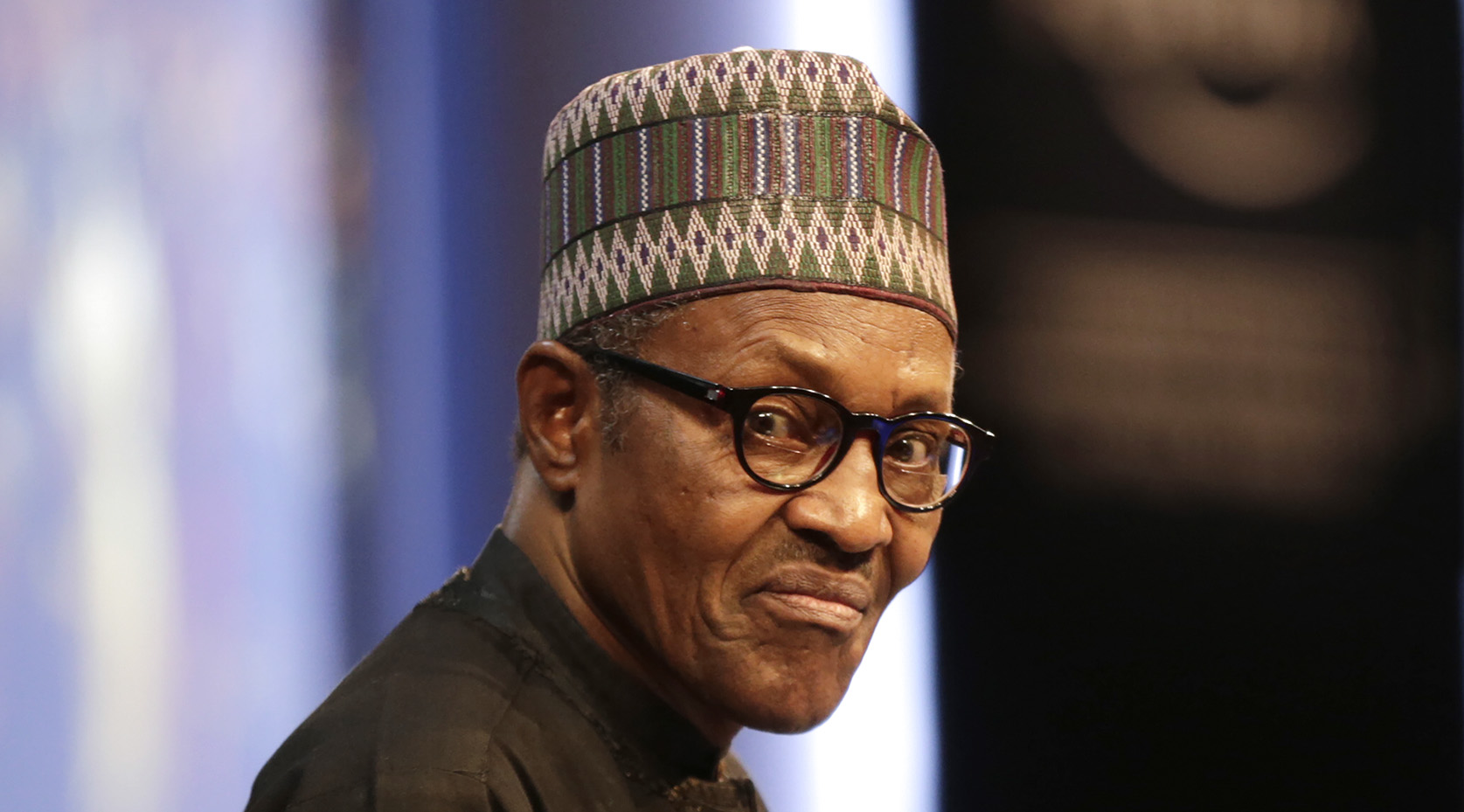Samson Itodo is a Standard Bank Derek Cooper Scholar and Master of Public Policy candidate at the Blavatnik School of Government, University of Oxford. He serves as the executive director of Yiaga Africa and the convener of the Not Too Young To Run movement. He is a member of the board of advisers of International IDEA, an intergovernmental organisation that supports and promotes democracy around the world. He tweets @DSamsonItodo.
Across the world, election management bodies operate as bulwarks of the democratic process. By superintending electoral competition, the election management bodies uphold democratic values, influence political behaviour and shape the character of democratic institutions.
These daunting tasks vest substantial responsibility in electoral institutions to ensure that decisions, policies and programmes are guided by principles including integrity, objectivity, neutrality, transparency, accountability and professionalism.
These values are essential for democratic stability in any society. Once an electoral institution fails the neutrality and objectivity tests, public trust is broken and voters disengage from participating in civic life.
Nothing is more disempowering and demotivating than having a partisan and partial electoral umpire manage multiparty elections. It strips the elected government of the political authority required to legitimise its rule.
State capture manifests in the way and manner in which political leaders assault the independence of electoral institutions. Institutions are captured to advance self-serving interests at the expense of the public good.
 A Nigerian voter waits to cast her ballot in the presidential elections in Kano, Nigeria 23 February 2019. (Photo: EPA-EFE / George Esiri)
A Nigerian voter waits to cast her ballot in the presidential elections in Kano, Nigeria 23 February 2019. (Photo: EPA-EFE / George Esiri)
Electoral commissions are either crippled financially or staffed with individuals whose partisanship and loyalty to the government in power are undeniable. The ultimate goal is to deprive electoral authorities of autonomy and the capacity to conduct elections defined by popular votes.
Authoritarian playbook
Evidence suggests all that is necessary for authoritarians to retain political power is to weaken the election management body, compromise the judiciary, clamp down on opposition and change the rules of the game. Political leaders across the world have successfully deployed these tools in the authoritarian playbook for elections.
The recent presidential election in Benin was fraught with opposition boycotts due to a loss of confidence in the electoral process.
Uganda’s President Yoweri Museveni has maintained his grip on power for 35 years by using brute force and compromising electoral authorities.
Similarly, the Central Election Commission of the Russian Federation returned the incumbent, President Vladimir Putin, as the winner of the 2018 polls despite high numbers of electoral malpractices.
In the past year, several countries experienced democratic recession. The Covid-19 pandemic appears to have presented political leaders and autocratic governments with an alibi to justify the curtailment of civil liberties and the abrogation of checks and balances. This trend persists.
Nigeria’s constitutional abuse
Ominous evidence of democratic recession in Nigeria is evidenced by President Muhammadu Buhari’s flagrant abuse of the 1999 constitution by nominating his social media aide, Lauretta Onochie, as a national commissioner of the country’s Independent National Electoral Commission (INEC). Onochie is his media aide and a member of his party, the All Progressives Congress (APC).
Section 156(1)(a) of Nigeria’s constitution prohibits the appointment of any person who is a member of a political party to the electoral commission. As a measure of ensuring the neutrality of the members of INEC, the constitution mandates that a national commissioner shall be non-partisan and a person of unquestionable integrity.
Buhari’s action raises questions about his commitment to electoral reforms and credible elections in 2023. It also raises a conflict of interest issue, which is a major concern for public sector organisations, especially in ensuring accountability and transparency in governance processes. Therefore, it is inexplicable that a person who has habitually demonstrated partisanship would be nominated as an electoral umpire to manage elections involving a party that she strongly supports, and other parties that she openly condemns.
By imposing its political cronies into election management bodies, the governing political class mutes the opposition and perpetuates its autocratic agenda via a seemingly democratic process.
Widespread condemnation
 Nigerian President Muhammadu Buhari (centre) waves to supporters during his inauguration ceremony in Abuja, Nigeria, 29 May 2019. (Photo: EPA-EFE / Stringer)
Nigerian President Muhammadu Buhari (centre) waves to supporters during his inauguration ceremony in Abuja, Nigeria, 29 May 2019. (Photo: EPA-EFE / Stringer)
Several citizen groups, political parties and professional associations condemned the appointment when it was announced on the floor of the Senate in October 2020.
The torrents of condemnation and rejection that greeted the president’s faux pas were unprecedented. It reinforces citizens’ repudiation of the abhorrent disregard for the rule of law and incessant state-sponsored assault on democratic institutions.
Following the massive public outcry, the screening process was stalled until 9 June 2021, when the matter resurfaced at the Senate plenary. The Senate president directed the Senate committee on INEC to proceed with the screening exercise. This latest development validates the insinuation that the eight-month delay was a ploy to accord Onochie ample time to resign her membership from the president’s political party.
In an attempt to stop the move by the Nigerian Senate to screen Onochie, a group of civil society organisations opposed to the desecration of the Nigerian constitution submitted a petition to the Senate, urging the upper chamber to reject the nomination because her appointment would significantly undermine the neutrality and impartiality of INEC.
It would also increase mistrust in the election management body as well as the electoral process. The petitioning groups contend that accepting her nomination is against the spirit of the Nigerian constitution.
Lessons from the past
Nigeria’s electoral history is replete with examples of how INEC appointments can either damage the integrity of or inspire confidence in the electoral process.
The appointment of Prof Attahiru Jega in 2010 improved INEC’s rating. His integrity and credentials inspired confidence in the commission and in Nigeria’s electoral process.
Conversely, INEC’s integrity was at its lowest ebb under Prof Maurice Iwu due to the level of electoral malpractices that plagued his tenure. We are all witnesses to the controversy generated by the alleged blood relationship between former INEC national commissioner Amina Zakari and Buhari.
Clearly, the neutrality of individuals appointed to electoral institutions matters. It is of the utmost importance because a strong perception of neutrality and autonomy can drive citizens’ agency and promote social harmony, especially in divided societies.
Impact on public trust
To discharge their mandate successfully, election management bodies must inspire confidence in the people. Trust is the lubricant of democratic elections. Political leaders should be circumspect about the implications of their actions on public trust and the negative perception that their actions could evoke among stakeholders in the electoral process.
If the neutrality and independence of election management bodies are central to the legitimacy and the acceptability of electoral outcomes, policymakers should ensure that these institutions are insulated from partisan politics. They should also be shielded from individuals with questionable characters whose past and present records may taint the integrity of an election management body.
Fostering fair electoral competition begins with depoliticising electoral institutions when making appointments to such institutions. It enhances institutional legitimacy and strengthens participatory democracy.
As seen in recent elections in Kenya, Malawi and Zimbabwe, social tension and violence can become by-products of mistrust in the election management process.
Policymakers and political leaders should therefore refrain from taking policy actions that strip election management bodies of autonomy, neutrality and objectivity.
The polarising effect of appointing individuals with partisan political inclinations into electoral commissions is too costly for democracy. DM/MC




 Nigerian President Muhammadu Buhari (centre) waves to supporters during his inauguration ceremony in Abuja, Nigeria, 29 May 2019. (Photo: EPA-EFE / Stringer)
Nigerian President Muhammadu Buhari (centre) waves to supporters during his inauguration ceremony in Abuja, Nigeria, 29 May 2019. (Photo: EPA-EFE / Stringer)